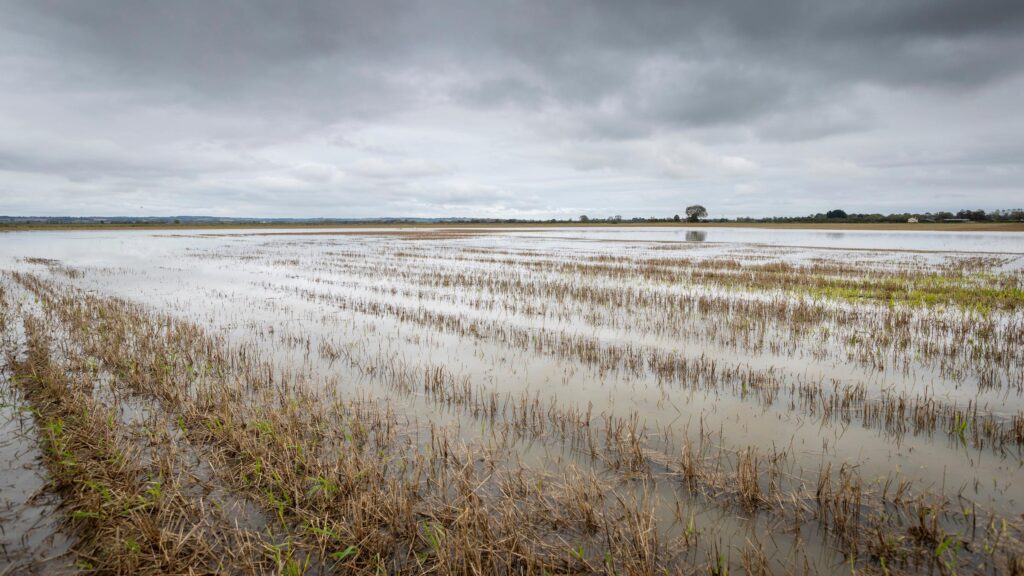Wet weather drives food security up the political agenda
 © GNP
© GNP Months of relentless rain has moved food security right up the political agenda and put farmers in a stronger position with policymakers, according to former Climate Change Committee chairman and past Defra secretary Lord Deben.
Addressing the recent Future of Farming conference at Plumpton College in East Sussex, he said one of the few certainties in farming was that winters were going to get wetter and summers hotter – which both had implications for food production.
See also: Welsh farm leaders demand help for flood-stricken farmers
“The consequence is that there is going to be a greater pressure on food production that we have ever seen in our lifetimes,” he said.
“The truth of the matter is that food security is absolutely central.”
Previous governments had argued that the UK would always be able to buy food from somewhere else in the world, but that was no longer plausible, Lord Deben added.
“They thought that food was not an issue, but now they are beginning to understand that food is the issue.”
Public goods
Lord Deben went on to criticise Defra, and a succession of “very poor” ministers, accusing them of failing to understand how to operate in this new world.
“One of the things we have to do is to stop this nonsense of saying that public goods do not include producing food,” he said.
“The first public good that farmers do is to provide food for the nation. We must go on demanding that that is part of the public goods picture, otherwise we will be diverted away from that central issue.”
Lord Deben agreed that farmers had to “do the environmental stuff” as well, otherwise it would be more difficult to “win the battle on food”, but there should still be support for food.
The total removal of all supports for food production flew in the face of history and would undermine farmers’ ability to make a profit and so deliver for the environment, he said.
In tandem
Joe Stanley, Farmers Weekly columnist and head of sustainable farming at the Allerton Project in Leicestershire, agreed that food production and environmental management could work successfully in tandem.
He explained how Loddington Farm had seen considerable wildlife and biodiversity gains since adopting “conservation agriculture” in partnership with Syngenta, with more birds and lower emissions.
Over five years of trials comparing ploughed and direct-drilled rotations, the latter had experienced an 8% drop in yields, but a 14% net profit gain, due to savings in fuel, time and fixed costs.
“The question is, do you want a slightly fuller shed, or a fuller bank account?” he asked.
